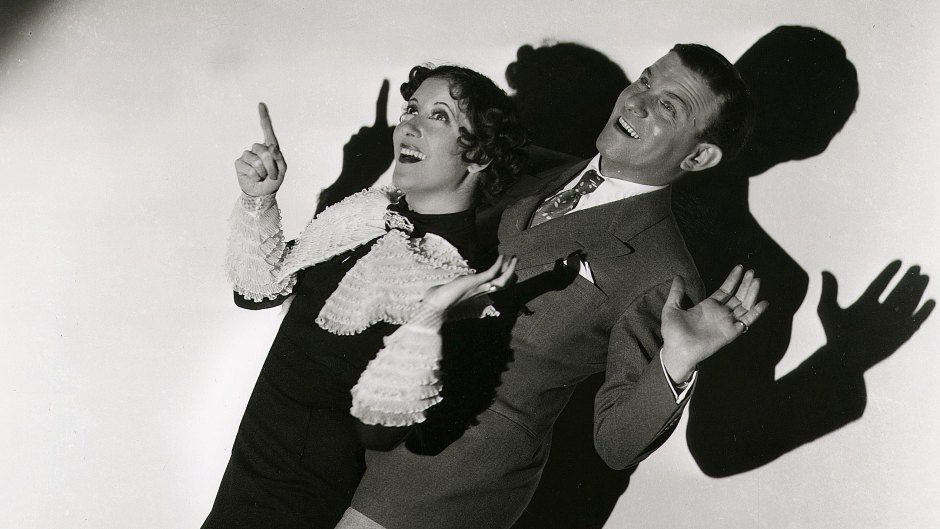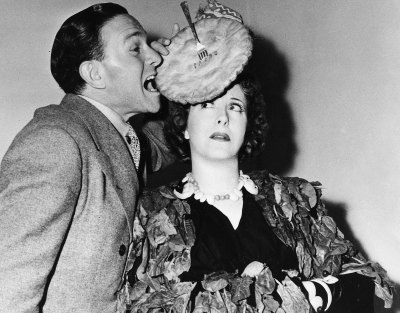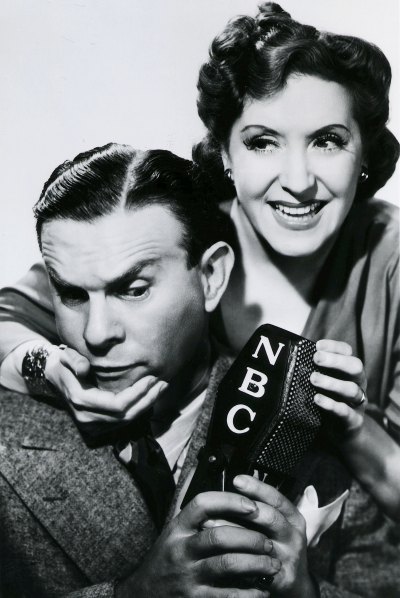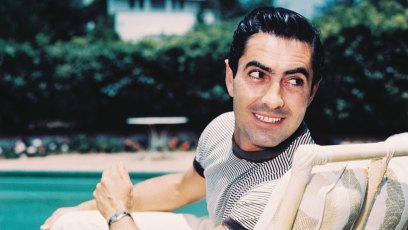
Paramount/Kobal/Shutterstock
George Burns Was ‘Miserable’ Performing Solo Act Without Wife Gracie Allen Before Her Death
George Burns and Gracie Allen joked that they’d met by accident. She supposedly thought George was Billy Lorraine, another vaudeville performer, when she introduced herself and suggested they team up. “Three days later, I told her to stop calling me Lorraine, my name was Burns,” said George. “And three years later, her name was Burns too.”
As Burns and Allen, the duo would successfully conquer vaudeville, radio, television and movies, becoming one of the most successful husband-wife teams in showbiz history — and also one of the happiest. The pair were married for 38 years until Gracie’s death in 1964. “Thirty-eight years and a great marriage,” gushed George. “We never worked too hard at being married. It came natural.”

It’s clear why they were drawn to each other. Both had literally grown up performing. Gracie, an Irish Catholic girl from California, made her stage debut at age 3 and performed folk dances in an act with her sisters. George, who was born Nathan Birnbaum, the ninth of 12 children, was 7 when he began harmonizing with the Pee-Wee Quartet in saloons on New York’s Lower East Side. “I was a failure from [age] 7 to 24, but I didn’t think I was because I loved show business,” said George.
Despite years of toil, the pair didn’t strike gold until they came together and allowed Gracie to be the funny one. Initially, George was the one making wisecracks in their act, but then he noticed how besotted the audience was with Gracie. “I said, ‘Look, let’s reverse this thing.’ I gave Gracie all the funny lines,” said George.
A typical Gracie joke would have a peculiar logic. She would tell George that she shortened all the electric cords on their lamps at home to save electricity. “The character was simply the dizziest dame in the world,” said George, “but what made her different… was that Gracie played her as if she were totally sane as if her answers actually made sense.”
Their audiences weren’t the only ones to come under Gracie’s spell. Although she was engaged to another when they began working together, that didn’t stop George from falling for her. “He was very patient in his many proposals,” says Susan Sackett, coauthor with Cheryl Blythe of Say Goodnight, Gracie! The Story of George Burns & Gracie Allen. “Eventually Gracie agreed to the marriage.”
In 1926, the year they wed, they were given a three-year contract by a vaudeville theater chain. “The secret of our success was that I knew what to do offstage and Gracie knew what to do on,” said George, who proved to be a brilliant promoter and businessman, as well as their act’s writer. They made their radio debut in 1929, the same year they began doing film shorts. In 1950, their long-running radio series, The George Burns and Gracie Allen Show, moved to television.
Their life together wasn’t all laughs though. “Gracie longed to be a parent but couldn’t have children,” says Sackett. Eventually, the couple adopted two children, Ronald and Sandra, whom they both doted on. “Ronnie eventually became a regular on their weekly TV show,” she adds.
Gracie also suffered from severe stage fright, despite her years of experience. “Eventually, she asked to have the red light on the live camera turned off because it made her nervous,” said Sackett. The star admitted that “the real Gracie is shy, a little self-conscious, and before every performance of my life, panicky.”
She stuck with it for many years for George’s sake, but finally retired in 1958 when her health began to fail. “She suffered from a heart ailment, which she kept ignoring. She also had migraines,” explains Sackett. “George was miserable without her as a partner, but Gracie was thrilled to have time for herself, to just sleep, shop, visit with her grandchildren and play gin rummy.”

Left to his own devices, George created a solo act, ran his TV production company — and cheated! “I don’t care if you were married to Marilyn Monroe. If you were married to her, you would cheat with some ugly girl,” rationalized George, who got caught when his maid found a condom he’d dropped and left it on a dresser where Gracie most certainly saw it. “If I’d said to Gracie that the boys at the Friars played a joke on me and they put that in my pocket, I think Gracie would have left me,” he admitted.
Instead, George apologized by purchasing a $750 silver centerpiece Gracie had been wanting and a $10,000 broach. “I gave her the pin, and she accepted it,” he said. “And we never talked about it.”
Gracie died of a sudden heart attack in 1964. “She had been upstairs watching TV while George was downstairs in the den working on a script,” says Sackett. “She was rushed to the hospital, where she died later that evening.”
A grief-stricken George had to be supported by his son and best friend Jack Benny at the funeral and was plagued by insomnia for months. “I finally began sleeping in Gracie’s bed a few months after she died,” he confessed. “And it worked.”
Eventually, George returned to his nightclub act. In 1975, he also experienced a career resurgence after he won a Best Supporting Actor Oscar for The Sunshine Boys. “I visit Gracie once a month. I talk to her,” George said. “When I was up for The Sunshine Boys, I asked her to talk to the fellow up there and make sure I got the part.”
George never retired, kept company with many young women in his senior years, but never remarried. He died months after his 100th birthday and was laid to rest beside Gracie. The crypt inscription reads: Gracie Allen (1902–1964) & George Burns (1896–1996) — Together Again.” At long last, Gracie had top billing.








































